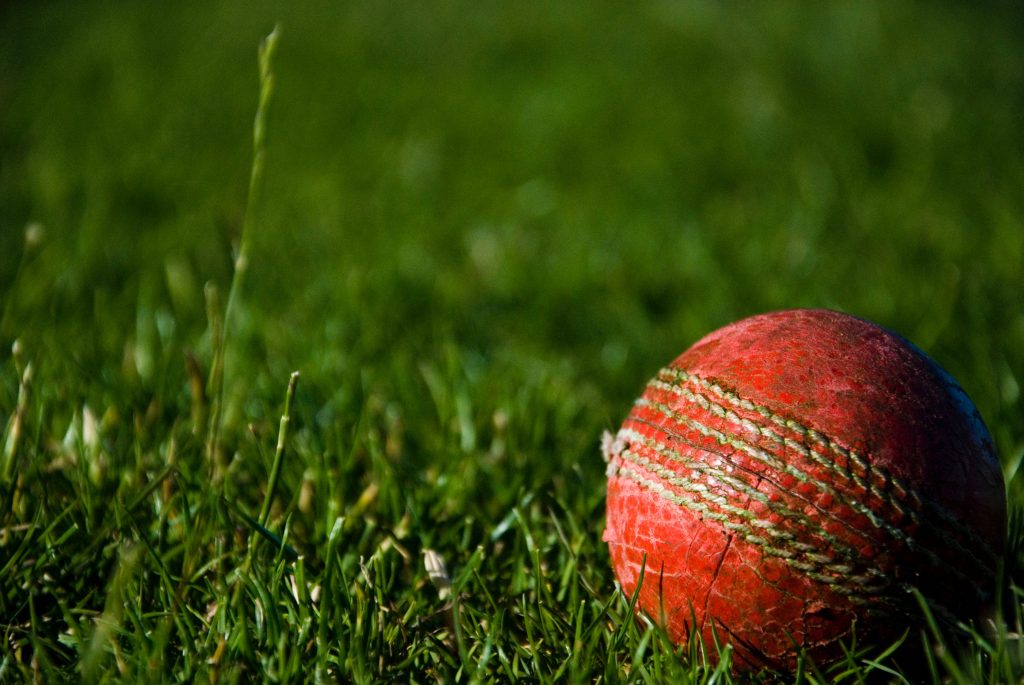It’s time to be brave and take the natural step towards a Welsh cricket team, argues Rhys David
When a new cricket competition – the European T20 cricket league – was put in place this year by the International Cricket Council, one nation with a long tradition of playing the game was absent.
Cricket in Wales, it would seem, is Glamorgan, or exists to be an “event” that brings people into Cardiff to watch England Test matches or international series. The new competition will feature city-based franchise teams (two each from Scotland, Ireland and the Netherlands) and will be broadcast in cricket markets globally.
So why have Welsh cricketers – whose numbers match or even exceed those of the other three countries – not been invited to join this event and make it a four-way tournament? Cricket here is organised into a North Wales Premier Cricket League and a South Wales Cricket League, both of which consist of 12 teams that play each other every season.
Professional cricket in England and Wales is represented by the 18-team County Championship. Glamorgan has been the sole Welsh member since joining in since 1921, winning the competition on three occasions, lastly in 1997. Over this period of nearly 100 years more than a dozen Glamorgan cricketers have represented England.
Financially viable?
It is essentially this status in English cricket that Glamorgan and the Welsh Government are determined to maintain. Glamorgan has consistently opposed the idea of a Welsh team on the grounds that it could compromise its finances and its position within the English County Championship. Cricket Wales, the sport’s official body, has also opposed independent status arguing it is preferable to play a major role within the ECB.
In addition, both Cardiff City Council and the Welsh Government argue inclusion within the ECB is a very useful peg on which to build Cardiff’s reputation as a sporting hub capable of attracting visitors to England matches.
The hold that this thinking has on the Welsh Government was made clear in a response to a question in the Senedd from Plaid Cymru AM, Bethan Sayed, in July by Eluned Morgan, Minister for International Relations and the Welsh Language, in whose brief cricket as an “event” project sits.
“The reduction of funding would undoubtedly have a significant negative impact on both the professional and recreational game in Wales. Both Cricket Wales and Glamorgan County Cricket Club are of the view that the establishment of a Welsh cricket team would not be of long-term benefit for the growth of the game in Wales,” she declared
Cricket Scotland and Cricket Ireland, both of which have grown the game over recent years from a smaller base than existed in Wales appear to take a different view. Here is Malcolm Cannon, Chief Executive of Cricket Scotland: “Cricket Scotland is always looking for more fixtures against high-quality opposition to develop the talent in our national team. The proposal for a six-team European tournament featuring teams from Ireland and Netherlands provides an excellent basis for Scottish cricket to prosper.
Compare and contrast this with Hugh Morris, Glamorgan chief executive. “We would lose our stadium. We would lose our players. I have not seen a business plan to see how it can work. We are very much wedded to the England and Wales Cricket Board in terms of finances,” he said. Wales, he argued, would also be playing in an ICC league with other countries, at the same time as Glamorgan.
So, what is best for Wales? Staying close to nurse (the ECB) for fear of something worse (the ICC), or declaring cricket independence? The number of first-class international sides has been growing. Twelve countries have full membership of the ICC – England, Australia, South Africa, India, Pakistan, Bangladesh, West Indies, New Zealand, Sri Lanka, Afghanistan, Ireland, and Zimbabwe. Ireland now plays full Test matches, famously out-playing England in the first two innings of their recent match.
In addition, there are 93 associates in countries where cricket is not yet ready for full membership. These include Scotland and the Netherlands, both of which regularly host international sides, though generally only for One Day Internationals. Zimbabwe, for example, is touring the Netherlands and Ireland this year and Scotland has played ODIs at home against Sri Lanka and Afghanistan and Oman.
Ireland and Scotland moved out of the ambit of “English” cricket, in 1993 and 1994 respectively to create separate associations. Before playing England in July this year, Ireland had already graduated to full Test match status with a fixture against Pakistan and is hence on a journey to appearing regularly at the highest level of cricket.
In Wales we can only look back and reflect that cricket has been played since at least the first recorded match in Pembrokeshire in 1763 (several years ahead of Scotland). Yet, the highest level of representation Wales achieves is as “Wales Minor Counties” in the English Minor Counties, Western Division, a sort of second division to the County Championship.
Interestingly, Wales has had international cricket sides at various points throughout the past 100 years and they have had some notable successes. Wales played England three times in 50-over matches between 2002-2004 and even managed to win the first encounter to the amazement of all.
In a Senedd debate in 2013 both Conservatives and Labour members lent their support to the idea of a revived Welsh side, and the case was also made in 2015 by Bethan Sayed. In 2017, First Minister, Carwyn Jones, called for the re-introduction of a Welsh One Day team.
Long-term gain
The question is complicated by Glamorgan’s position as one of the eighteen first class county sides but the idea Glamorgan might drop or be forced out of the county championship sounds like special pleading. Wales has an international football side, and this has not prevented Cardiff City, Swansea City, Newport County and Wrexham from playing in the English football professional system.
Indeed, would Glamorgan necessarily be weakened by the emergence of a Welsh side competing independently? Several decades ago, Glamorgan consisted mainly of Welsh players plus a few overseas stiffeners. Today the side is almost entirely composed of cricketers from outside Wales and a handful of Welsh players, so a Welsh team would hardly be drawing on the same resources. Nor need matches be played in Cardiff in competition with Glamorgan. Swansea has a long tradition of support for cricket and lost out to Cardiff when Glamorgan concentrated most fixtures at Sophia Gardens.
With a Welsh side playing in Wales in fixtures against other nations interest in the game in Wales and participation (by men and women) could only grow? This could benefit Glamorgan and perhaps generate a larger cohort of players who might go on to play for the county.
A Welsh side would also give Welsh-qualified Glamorgan players the opportunity to play international cricket for a Wales team. The very best players might still choose to play for England. After all, England’s One-Day captain, Eoin Morgan is an Irish national with a Welsh surname.
And let’s face it Glamorgan has not been pulling up trees in the English cricket system since it last won the championship more than 20 years ago, finishing bottom of Division Two last year (i.e. eighteenth out of eighteen) with just two wins all season. Perhaps too much time and effort has been put into creating a stadium fit for Test matches and ODIs to the detriment of cricket in Wales generally.
England might stop playing Test matches or ODIs in Cardiff if there were a separate Wales side. But is the role of super-host the best we can hope for? At least some of the revenue that would be turned away if Wales left the England and Wales Cricket Board to set up its own board (and lost the right to host England matches) could be recouped through Welsh international matches.
The recent World Cup which brought together the ten best one day cricket countries, has shown how much pride can be derived by the smaller countries from appearing in tournaments such as these and occasionally outplaying the more senior sides.
It would be good to see Wales attempting over time to appear in events such as the World Cup or to put forward teams for a league competition, as well as regularly playing versions of the game against comparable countries in Europe and some of the aspiring African and Asian nations. This could encourage young people to take up the game and help to raise performance standards throughout the sport in Wales.
A fuller version of this article can be found on www.novacambria.wales
Photo by Alessandro Bogliari on Unsplash
All articles published on Click on Wales are subject to IWA’s disclaimer.





